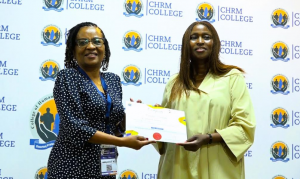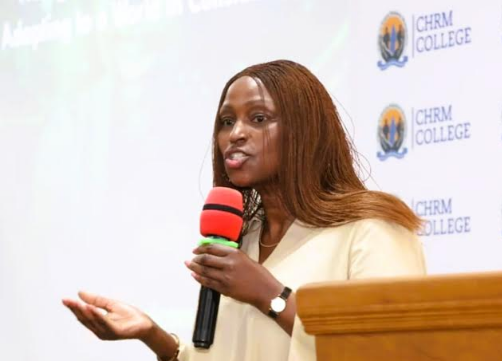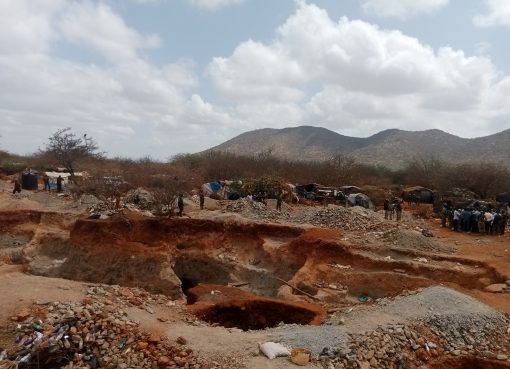Safaricom PLC Chief Human Resources (HR) Officer Florence Nyokabi is calling on organisations to embrace new technologies for operational efficiencies.
Nyokabi says the introduction of new technologies has allowed HR to play a much larger role in shaping a company’s operational efficiencies and leveraging opportunities.
She says in the current workspace, organisations cannot afford to ignore the rapid technological advancements and the rise of automations.

The Safaricom HR top official says as the world is rapidly shifting towards the digital space, it’s no longer optional but vital for organisations to embrace it for business survival and growth.
“In the rapidly evolving landscape of business and technology, the role of HR is evolving at an unprecedented level,” she said.
Nyokabi, who is a recognised thought leader in HR circles, was speaking in Mombasa during the 8th Annual Talent Summit organised by the College of Human Resource Management (CHRM) at the PrideInn Paradise Beach Resort and Convention Centre.
She delivered a powerful keynote address on navigating the future of talent with her insights focusing on adapting to a world in constant flux and preparing for the challenges of tomorrow.
The HR guru stated that new technologies such as Artificial Intelligence (AI), Data Science and Cloud Computing can help businesses to be more efficient, productive, and profitable.
She says once such new technologies are deployed, they boost businesses’ efficiencies by automating repetitive tasks, enhancing data analytics, and improving cyber security.
“The emerging technologies are today pushing the boundaries of what’s possible in the digital world space,” she said, adding that embracing digital transformation will provide a pathway to future successes.
“For any organisation to remain relevant and effective in their pursuits, it must tap into technological advancements to respond to changes within the markets and progress for good,” she said.
Nyokabi says the telecommunications provider is aspiring to become Africa’s purpose-led technological company by 2030, and to achieve this, ‘we need to build on the technological capabilities that we already have’.
She dispelled the anxieties around emerging technologies that they could lead to huge job losses at the workplace or taking over some aspects of work across disciplines.
“Organisations need to overcome such fears by adopting and implementing watertight strategies in their workspace automation endeavours,” she said.
Joan Mbesya, founder and CEO of Tech Mindset Africa Ltd., says technology is constantly evolving and with it the way human beings approach work.
“The reality is that emerging technologies such as AI, the Internet of Things, Machine Learning and Edge Computing are here with us, but the good news is that they can’t handle the part of jobs which require a human touch,” she said.
Mbesya says new innovations in robotics and AI can be powerful tools for businesses and a big enabler but at the same time be a source of fear and anxiety for employees.
The Tech Mindset Africa Ltd. CEO noted that the emerging technology penetration in Africa stands at about 5 per cent as African countries are yet to heavily invest in the research and development of new technologies.
“From automating tasks to enhancing decision-making, AI and other emerging digital technologies are revolutionising the way we work, and so we need to embrace them as the future of work,” she said.
CHRM Principal Margaret Kinyanjui says the annual talent summit provides an opportunity for organisations to engage with thought leaders and industry experts in insightful conversations about talent, leadership, innovation, and unmatched networking opportunities.
Kinyanjui noted that the delegates to the summit engaged deeply, exchanging insights that are set to redefine the HR landscape.
By Hussein Abdullahi





